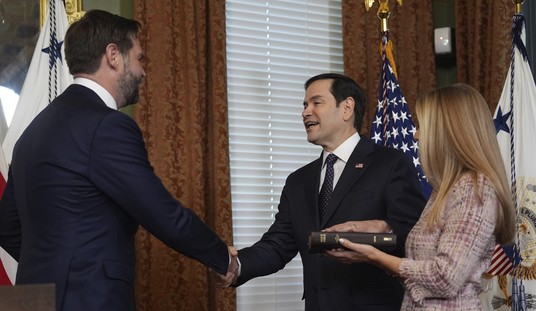The nearly 300 mostly European civilians who lost their lives when Malaysian Airlines Flight 17 was blown out of the sky by pro-Moscow militants using a sophisticated Russian anti-aircraft battery died almost instantly.
That is the likely conclusion of a recent investigation into the attack on MH17. Officials who are digging into the data contained within that flight’s black box determined that the plane suffered a “massive explosive decompression” when the fuselage was impacted by hundreds of shrapnel fragments emanating from a detonating surface-to-air missile.
“It did what it was designed to do,” a European air safety official, speaking to CBS news, said of the missile investigators believe to have been fired from a Russian SA-11, “bring down airplanes.”
Since that civilian transport was destroyed on July 17, the United States has alleged that Russia has only escalated the conflict in Ukraine.
Without using that inflammatory and legally binding term, U.S. officials with the State Department accused the Kremlin last week of committing acts of war in Europe.
“We have new evidence that the Russians intend to deliver heavier and more powerful multiple rocket launchers to the separatists forces in Ukraine, and have evidence that Russia is firing artillery from within Russia to attack Ukrainian military positions,” State Department spokeswoman Marie Harf said on Wednesday.
The Defense Department echoed State on Thursday. “For several days the Russians have been firing artillery into Ukraine,” Pentagon spokesman Col. Steve Warren said. “This is clearly a military escalation.”
On Saturday, American officials backed up this claim with evidence which they claim indicates that the Russian military has continued to supply rebels in Ukraine with heavy weaponry and has targeted on Ukrainian military positions with artillery fired from inside Russian territory.
These satellite images, via CBS Radio reporter Cami McCormick, make the case:
With American defense and foreign affairs officials speaking so clearly on the situation in Europe — a situation which is indistinguishable from a low intensity war — the silence out of the White House on this matter is even more jarring.
America’s lack of a clear policy to address Russian aggression is understandable; there is no easy way to force Moscow to back down. This is not the Cold War. Russia’s economy is not closed, and any sanctions regime robust enough to force the Kremlin to recalculate would necessarily take a toll on fragile Western economies as well.
“Silence has been forced on them because to speak openly would risk accusations of disloyalty,” Forbes contributor Eamonn Fingleton wrote on Sunday. “But they know in their heart of hearts that Obama’s sanctions policy will play out as a double whammy for the American economy.”
For a start the sanctions will deprive America of badly needed immediate export opportunities. But a much more troubling problem in the long run is that East Asian and European rivals will succeed to the place of U.S. corporations in the Russian market.
Officially, of course, this shouldn’t happen. After all, corporate America’s foreign rivals are based mainly in nations that support Obama’s sanctions. Such nations notably include Japan, South Korea, and Germany. They also include France, Italy, and the UK.
The problem is that, with few exceptions, these nations are not nearly as committed to punishing Russia as the United States. This applies in spades to Japan, which happens to be by far America’s most formidable rival in high-technology goods.
Even with a global, uniform sanctions regime on Russia in place, itself a highly unlikely prospect, there is no guarantee that Russian President Vladimir Putin would abandon his gambit in Ukraine. The Russian leader has made it clear for all those who are listening that his government views the conflict in Ukraine as central to Russia’s place in the geopolitical order. For the West, the stakes in Ukraine are much lower.
Moreover, the proposition that the Russian people would revolt against Putin if they were confronted with deprivation is a shaky one. The Russian character was forged in economic and military conflicts with Western powers, and Putin’s popularity has skyrocketed while claiming that his actions are taken only in defense of his country’s interests in the face of Western aggression.
These practical considerations are, however, no excuse for the lack of moral clarity from the president on the state of the present conflict in Russia. Numerous commentators have noticed that United Nations Amb. Samantha Power spoke with more refreshing precision about the source of the present conflict in Europe and the threat it poses to the global order than has President Barack Obama.
It costs Obama nothing to state clearly who is to blame for the crisis in Europe. So why is he leaving it to his subordinates to make that case while he treats it as a secondary concern?











Join the conversation as a VIP Member